M HKA
Museum of Contemporary Art Antwerp
.
salon
Melancholies of Modernity
Thursday 29 September 2022, 19h00 – 21h00
M HKA Auditorium, M HKA 3rd floor
Leuvenstraat 32, 2000 Antwerp
(welcome from 18h00 on at the MHKAFÉ, 4th floor)
free entrance
no registration needed
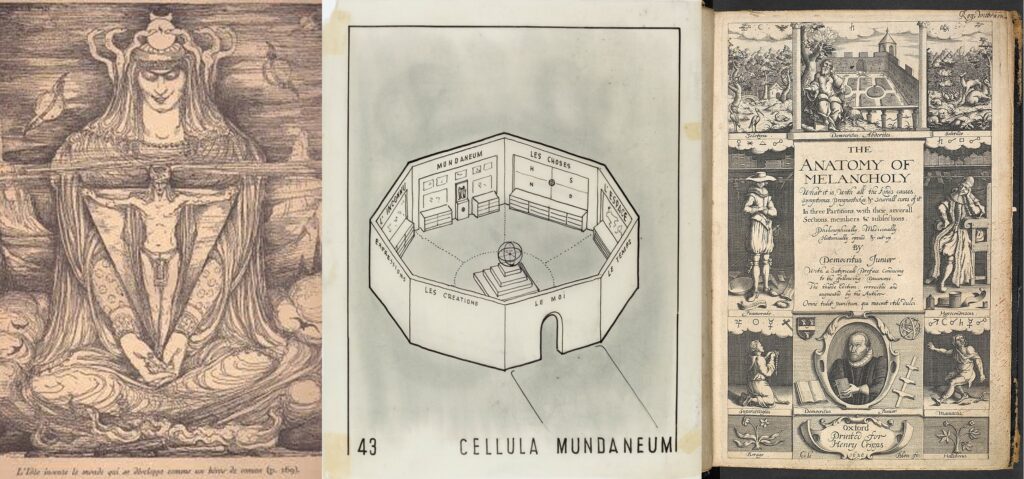
Introduction
On the occasion of the INBOX show ‘Gaston Meskens – What’s Wrong With Ideology? Life and work at the Institute of Idle Curiosity for Elements of Seduction’, M HKA and Gaston Meskens host a salon in which invited speakers and the audience will discuss current interpretations of how the ideology of modernity still shapes our world today. In addition, the salon will reflect on the proposed need for a re-reading of modernity.
The point of departure for the salon is the proposal that the traditional historical reading of modernity as a self-confident unidirectional process of emancipation and scientific, industrial, social and political progress is too simple, and this for two reasons:
Firstly, the emergence of modern democracy and science can be understood as emancipatory liberations from the emperors and the priests, but the idea is that the ‘methods’ of democracy and science we inherited from modernity are no longer able to grasp the complexity of the socio-political problems we face. From this perspective, the difference with art is meaningful: while modernity made democracy and science to become self-confident producers of rational truths (claiming that justification of these truths could be provided by the logic of their own internal rational methods), art was the only interaction mode for which modernity was a gradual process of self-reflection and critical self-relativisation.
Secondly, the traditional interpretation of modernity tends to overlook typical ‘early signs of reflexivity’ that happened in socio-political modernity itself. As examples, in their attempts to democratise knowledge and to strive for emancipation and liberation, people such as Paul Otlet and Wilhelm Reich, but also Walter Benjamin and Rosa Luxemburg, were visionary critical about the modern exploitation and commodification of the human being, but at the same time their work could be called vulnerable and therefore melancholic, given that it could easily be set aside as naive by modern economic and political powers that, at the same time, would manipulate and appropriate thoughts of these thinkers and activists into their own strategies (see the salon text on melancholy at the end of this document).
Why all this matters today
The idea is that we cannot fully grasp the ethics of complexity of todays socio-political challenges if we don’t try to critically re-asses the ‘methods’ of democracy and science we inherited from modernity and at the same time reflect on the above mentioned early activists in terms of how and why their visionary ideas are still of key importance for well-being and social justice but also still vulnerable today.
Programme
18h00 – 19h00 / welcome at the MHKAFÉ (M HKA 4th floor)
salon (M HKA auditorium, 3rd floor)
19h00 – 19h20 / Gaston Meskens – Melancholies of Modernity
19h20 – 19h50 / Henk De Smaele – What is modernity?
19h50 – 20h20 / Shamina de Gonzaga – Acknowledging inequality and interdependence as a driver for change
20h20 – 21h00 / discussion with the speakers and the audience
the INBOX show is open during the evening
speakers
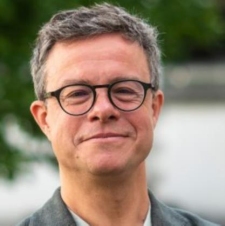
Henk De Smaele started his career as a political historian, studying nineteenth-century Belgian elections and parties (with an emphasis on the Catholic party). His PhD (defended at the University of Leuven in 2000) was published by Leuven University Press in 2009 (Rechts Vlaanderen. Religie en stemgedrag in negentiende-eeuws België). Since then, his research focus has shifted towards the history of gender and sexuality, and – more recently – to the history of cultural encounters between European and Ottoman/Turkish citizens in the nineteenth and twentieth centuries. Taken together, he is particularly interested in challenging the still dominant paradigm of ‘modernization’ in much of today’s historiography.
Today, his main affiliation is with the research unit Power in History: Centre for Political History. In addition, Henk is also involved in several interdisciplinary projects on gender and sexuality, collaborating regularly with colleagues from other disciplines, such as Alexander Dhoest, Bart Eeckhout, Petra Meier and others of the Antwerp Gender and Sexuality Studies Network (A*). He is also affiliated to the Antwerp Research Institute for the Arts (ARIA), of which he was the first chairman (2014-2017). Henk has been Visiting Research Fellow at the University of Sussex (2002-2003), Honorary Lecturer at the History Department of University College London (2015-2017) and Visiting Research Fellow of the Birkbeck Institute for Social Research, University of London (2017-2018). He also serves as co-chair of the Belgian Archive and Research Centre for Women’s History (Brussels) and as founding member of the Forum for Belgian Research in History of Women, Gender and Sexuality.

Shamina de Gonzaga has worked to connect the United Nations with civil society and the arts for over two decades. As Executive Director of World Council of Peoples for the United Nations (WCPUN), a UN associated NGO, and Editor-in-Chief of the WCPUN publication Centerpoint Now she provides platforms for international innovators, artists, activists, and other sectors to engage with policymakers. Co-founding Director and Facilitator of the migration film and dialogue series Indocumentales, she convenes academic, cultural, media and artistic institutions to listen to perspectives of migrant communities in Mexico, the US and the Mediterranean. She has produced public exhibitions on UN goals, as well as multimedia series in partnership with Streaming Museum. As Adviser to three successive Presidents of the UN General Assembly, and Chair of the largest UN NGO Conference to mark the 60th anniversary of the Universal Declaration of Human Rights (UNESCO, Paris), Shamina led multi-lingual and multi-stakeholder processes that helped set new precedents for civil society at the UN. She co-authored Founding a Movement: Women’s World Banking (1975-1990) and continues to advise social entrepreneurs and philanthropists on how to align their objectives with community interests and the UN’s Sustainable Development Goals. She is fluent in English, French, Spanish, and Portuguese.
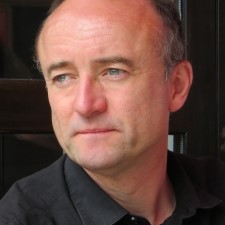
Gaston Meskens is an artist and philosophical activist with a background in science. He studied theoretical physics with a focus on cosmology and nuclear physics at Ghent University and developed since then a ‘philosophical activist’ and art practice in parallel. He is the founder and coordinator of The Institute of Idle Curiosity for Elements of Seduction and of the New Humanism Project and works parttime with the Centre for Ethics and Value Inquiry of the Faculty of Arts and Philosophy of Ghent University and with the Science & Technology Studies Group of the Belgian Nuclear Research Centre. He is also occasional guest lecturer at the International Atomic Energy Agency, Trinity College Dublin, the Polytechnic University of Madrid, the Aachen Technical University, the World Nuclear University, the Rijksakademie Amsterdam, the Higher Institute of Fine Arts (HISK, Ghent) and the University of Hasselt. More info on https://www.normsanddialectics.net.
. Revisiting Melancholy .
Declaration from
the 2nd World Conference on the Value of Melancholy in Times of Cheap Commitment
Gaston Meskens
Antwerp, August 2016
> – <
Robert Burton published the first edition of his magnum opus ‘The Anatomy of Melancholy’ in 1621. His aim was to write a definite and comprehensive study of the meaning of melancholy. His book promised to explain ‘.. What it is: With all the Kinds, Causes, Symptomes, Prognostickes, and Several Cures of it. In Three Maine Partitions with their several Sections, Members, and Subsections. Philosophically, Medicinally, Historically, Opened and Cut Up…’. What looks at first sight as an exhaustive analysis of melancholy as a disease to be cured is in fact much more. Burton uses melancholy as a perspective to inquire into all human emotions and thought. In that sense, the Anatomy can also be seen as a total encyclopaedia of the human condition of that time.
Our modern times may now inspire us to re-read that meaning for the contemporary human condition, although not through a systematic re-interpretation of the encyclopaedic classes and categories, but on the basis of one simple idea….
Melancholy is not depression neither pessimism. Drawing on interpretations from the pre-modern Romantic and Decadent Era, it can be described as the aesthetical consolation that comes with the awareness of the impossibility of pure beauty, unity and harmony, and of the inevitability of imperfection, decadence and uncertainty. The idea however is that melancholy is not a detached but an ethical experience, and that this became apparent with modernity: melancholy is the human condition resulting from a deliberate awareness of the limits to rational instrumental reason in a context of social appeal. That social appeal may either be love, friendship or lust, or social or political engagement. The implications of modernity rendered melancholy with a social meaning: the impossibility of pure beauty, unity and harmony, and of the inevitability of imperfection, decadence and uncertainty, is not experienced by way of detached observation, but in a reflexive way in social interaction.
In this vision, the ‘end state’ of melancholy is still aesthetical consolation. But that state is not passive, as it arises from an ethical demand. In its recognition of the intrinsic ambiguity of human interaction and of the inherent complexity of social organisation and coexistence, it is an intellectual withdrawal from the delusion of grandeur of a society obsessed with rationality, security, efficiency, predictability and competition. In its disdain for complacency, it is a consolatory practice of leaving the comfort zones constructed around strategies of conformism, positivism, populism and profitism. But as an active state of resignation, melancholy is not evasive. Its decadence is in the eyes of the conformists. Layered on reflexivity as an ethical experience, it feels the anger towards the detached. And as a meta-state of concern, it is aware of the fragile potential of intellectual solidarity among the capable, and of the melancholy of the capable as vulnerable.
Melancholy is practicing the aesthetics of imperfection, decadence and uncertainty, although with a constant awareness of – and care for – the possible of human possibilities.
.
photo credits
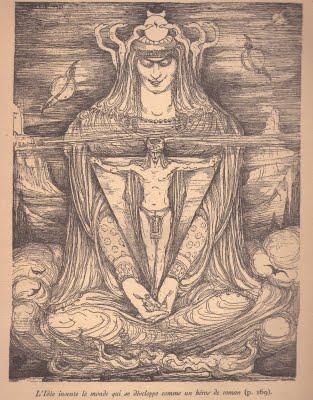
https://www.paperblog.fr/2261570/leonard-sarluis-voyage-au-pays-de-la-quatrieme-dimension/
.
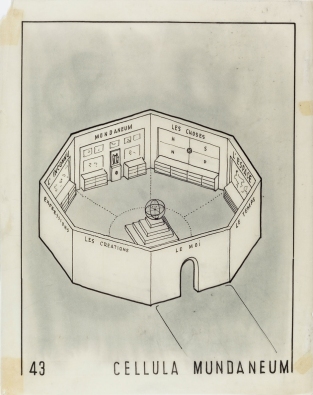
https://socks-studio.com/2019/05/05/the-shape-of-knowledge-the-mundaneum-by-paul-otlet-and-henri-la-fontaine/
.
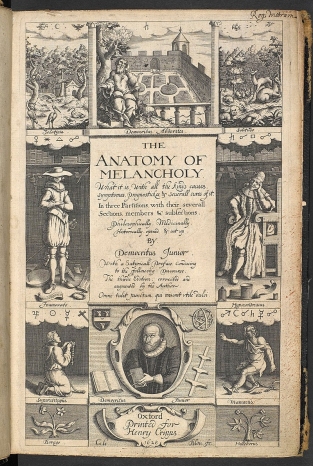
https://en.wikipedia.org/wiki/The_Anatomy_of_Melancholy
.
.